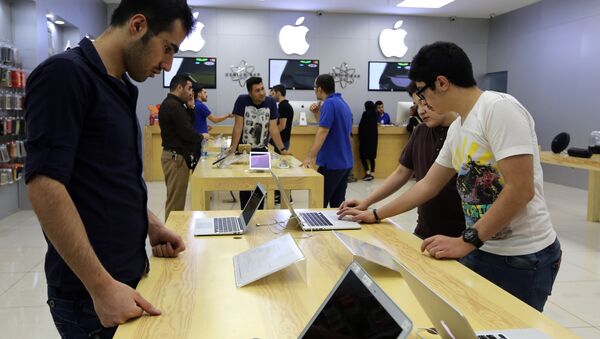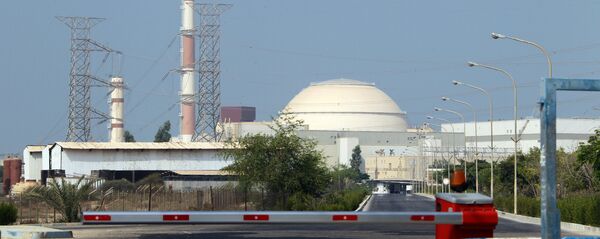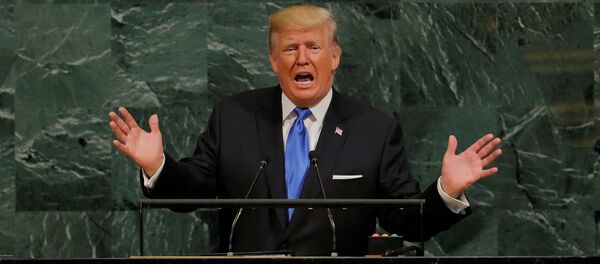The figures, released by the Bureau earlier this month, show that the normalization in Iranian-US economic relations that was expected after the 2015 signing of the Iran nuclear deal has not materialized, and that on the contrary, trade has declined even further.
Speaking to Sputnik Persian, international relations expert Dr. Alexander Azadgan said that the statistics confirm that President Donald Trump's Iran stance is at odds with the interests of US companies. "While large US corporations, especially oil companies, are looking to cooperate with Iran, Trump's actions demonstrate his desire to distance [the US] from Iran," he said.
"There's no question that Trump's behavior has had an impact on trade," Azadgan noted. "US and even European banks are afraid of even the slightest hint of a deterioration in relations between Tehran and Washington, and the raising of the issue of the nuclear deal. This is the reason for the decline in trade between the two countries over the last seven months."
Asked how the drop in trade might affect ordinary Iranians and the Iranian economy, Azadgan said the effect would be minimal. "Many European countries are already prepared to fill the vacuum. Countries like Russia and China, which have always had good relations with Iran, are also covering this shortage. Perhaps South Korea will also increase its exports to Iran…"
This was particularly relevant in the car industry, which can be described as "standing in line to enter the Iranian market," the observer said.
"On the whole," Azadgan noted, "Iran will not face any special problems. Could trade between the two countries stop completely? It depends on the Trump administration. If Trump starts acting more logically – thinking about trade more than about protecting Israel's interests in the region, we will see what kind of trade relations the US will get with Iran. Generally, everything depends on Trump's decision on the nuclear deal in October."
Based on this decision, trade turnover would either grow or stop entirely, Azadgan concluded.
Russian officials are staunchly opposed to revising or dropping the deal. Commenting on Trump's UN speech last week, Mikhail Ulyanov, director of the Russian Foreign Ministry's Department for Nonproliferation and Arms Control, stressed that the move would "sharply escalate the situation in the region." Other observers have warned that breaking the deal could eventually lead Tehran to restart its nuclear program.



